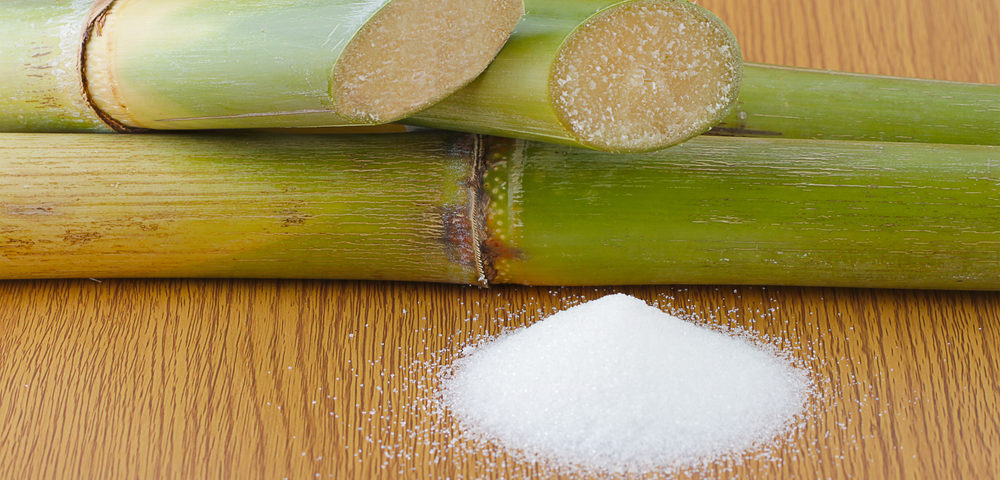How Sugar and Cane Are Processed for Use in Everyday Products
How Sugar and Cane Are Processed for Use in Everyday Products
Blog Article
Why Cane Sugar Processing Chemicals Are Crucial for Modern Sugar Refining
The duty of walking stick sugar handling chemicals in modern-day sugar refining can not be overstated, as they are important to boosting both the efficiency of removal and the total quality of the end product. Representatives such as phosphoric acid and specific flocculants are employed to remove contaminations, resulting in sugar that not only satisfies customer expectations however additionally abides by sector requirements. The ramifications of these chemicals extend past high quality, touching upon market characteristics and ecological considerations. sugar and cane. This increases important questions regarding the sustainability of such methods and their effect on the future of sugar production.
Duty of Handling Chemicals
The effectiveness of walking cane sugar handling pivots significantly on the tactical application of handling chemicals. These chemicals play a crucial role in enhancing the effectiveness and top quality of sugar extraction and refining. From the initial phases of juice extraction to the final filtration actions, processing chemicals facilitate different crucial procedures.
In the removal phase, chemicals such as phosphoric acid and calcium hydroxide are employed to enhance the explanation procedure, assisting to remove impurities and suspended solids from the walking stick juice. This not only boosts the yield however also ensures the quality of the final product. Additionally, agents like flocculants aid in the rapid settling of impurities, thus simplifying the general process.
As the processing breakthroughs, chemicals are made use of in decolorization and condensation stages. Triggered carbon and ion exchange materials serve to remove shade and odor, making certain that the refined sugar fulfills consumer high quality requirements. Inevitably, the role of handling chemicals expands beyond functional performance; they considerably impact the sensory features of the last product, adding to market competition. Hence, the precise option and application of these chemicals are important for accomplishing optimum results in cane sugar processing.
Trick Sorts Of Chemicals
Walking cane sugar processing counts on a variety of vital chemicals that facilitate each phase of manufacturing. These chemicals play essential duties in clarifying, bleaching, and cleansing the sugar removed from cane.
One key category of chemicals includes flocculants, such as polyacrylamide, which aid in the explanation process by promoting the gathering and settling of impurities. Additionally, calcium hydroxide is frequently utilized to neutralize acidity and help in the elimination of non-sugar parts.
Bleaching agents, such as triggered carbon and sulfur dioxide, are made use of to decolorize the syrup, resulting in a more clear last product. These chemicals aid eliminate color substances that might impact the sugar's appearance and bankability.
In addition, phosphoric acid works as a pH regulator during the processing phases, making sure ideal conditions for the chemical tasks associated with sugar removal and purification.
Other vital representatives include edta (ethylenediaminetetraacetic acid), which chelates steel ions that can catalyze unwanted reactions, and sodium hydroxide, which assists in pH control throughout the refining process. Jointly, these chemicals enhance efficiency and make sure a high-quality cane sugar item.
Benefits for Sugar High Quality
Often overlooked, the use of certain processing chemicals dramatically boosts the overall high quality of walking cane sugar. These chemicals play a crucial duty in refining procedures, making certain that the last item fulfills rigid market criteria for purity and taste.

Additionally, processing chemicals assist in achieving a regular granulation and texture, which are critical for customer approval. By controlling the formation procedure, these chemicals guarantee that the sugar crystals develop evenly, bring about a more enticing product that liquifies well in numerous applications.
Additionally, using these chemicals can boost the rack life of cane sugar by decreasing dampness absorption and microbial growth. Generally, the strategic application of processing chemicals is crucial for supplying premium walking cane sugar that fulfills customer expectations and market demands.
Environmental Impact Considerations

Additionally, the energy-intensive nature of sugar refining, compounded by chemical usage, often results in raised carbon emissions. This adds to environment modification and elevates worries regarding the sustainability of current refining methods. Additionally, the sourcing of these chemicals might involve techniques that threaten biodiversity, such as monoculture farming, which minimizes the durability of agricultural ecological communities.

To alleviate these effects, sugar refiners are significantly checking out lasting alternatives and taking on ideal techniques that decrease chemical use. Executing strenuous ecological monitoring systems can help ensure that the refining procedure lines up with ecological requirements and promotes biodiversity. Eventually, a balanced technique that prioritizes both sugar high quality and environmental stewardship is essential read what he said for the long-lasting feasibility of the sugar industry.
Future Trends in Refining
As the sugar industry grapples with the ecological challenges connected go to my blog with conventional refining approaches, innovative approaches are arising to enhance both efficiency and sustainability. One considerable pattern is the adoption of eco-friendly chemistry principles, which prioritize the usage of safe, naturally degradable handling chemicals. This change not only decreases ecological impact however also addresses consumer demand for cleaner production techniques.
An additional promising advancement is the implementation of sophisticated filtration modern technologies, such as membrane separation and adsorption procedures. These techniques enhance the clearness and high quality of the sugar while reducing the volume of wastewater created throughout refining. In addition, the integration of electronic innovations, including IoT and AI, is changing operational performance by making it possible for real-time tracking and anticipating upkeep, therefore decreasing resource waste.
Furthermore, making use of spin-offs from sugar refining, such as bagasse and molasses, is gaining grip. These products can be exchanged biofuels or value-added products, adding to a round economy within the industry. Jointly, these fads signify a shift towards even more lasting methods that not only boost operational performance yet additionally align with global sustainability objectives, making certain the future practicality of sugar refining.
Verdict
Walking stick sugar handling chemicals are essential in contemporary sugar refining, significantly enhancing the efficiency and high quality of sugar removal. The tactical use these chemicals not only enhances the purity and taste of the final product yet additionally makes sure consistent formation and structure. As the market increasingly prioritizes sustainability, the have a peek here fostering of environmentally-friendly handling representatives is likely to form future patterns in refining, inevitably resulting in better products and extended service life for consumers.

Inevitably, a well balanced strategy that focuses on both sugar high quality and environmental stewardship is important for the long-lasting feasibility of the sugar sector.
Cane sugar processing chemicals are crucial in modern-day sugar refining, considerably boosting the performance and top quality of sugar removal.
Report this page